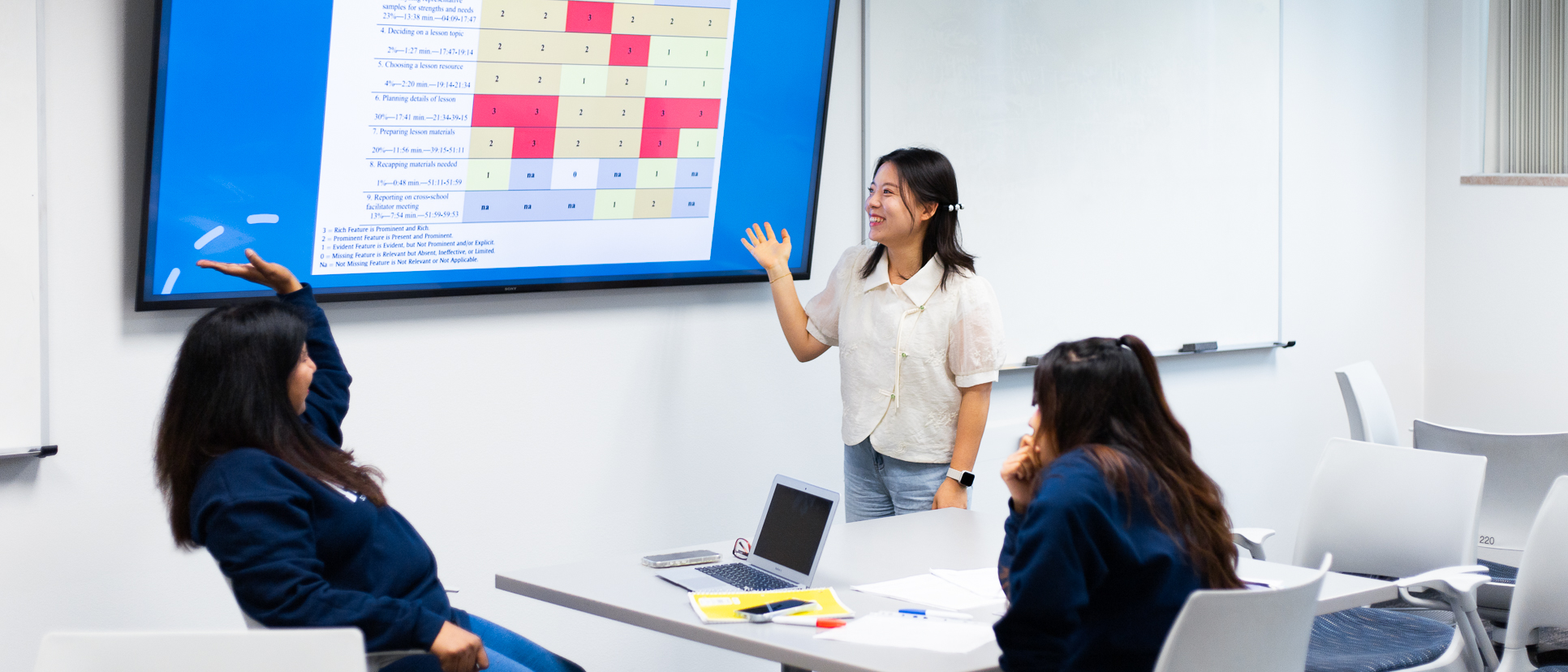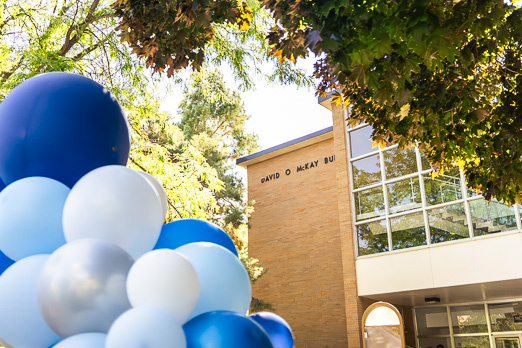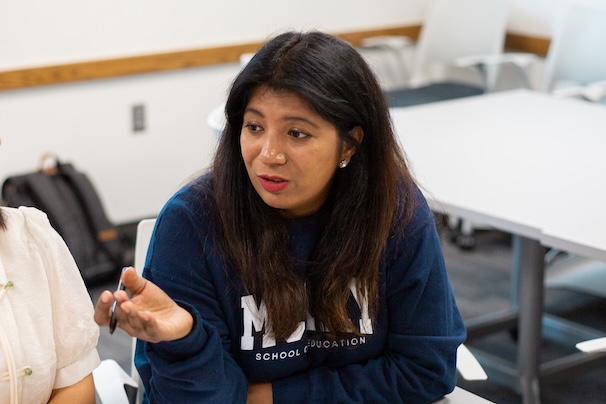Program Overview
MA in Teacher Education
Overview
In Teacher Education we recognize how spiritual and academic inquiry are interconnected and guided by the Holy Spirit (D&C 6:14; 3 Nephi 27:29). We follow the divine inquiry process laid out by our Savior. We faithfully ask to receive truth and inspiration, following the Master Teacher “full of grace, equity, and truth” (Alma 9:26) as we engage in critical educational research to improve the lives of children, youth, and families.
In the teacher education master’s program, you will:
- Engage in meaningful mentored research through thesis work guided by faculty mentors.
- Pose meaningful questions of practice and explore what scholars say on various education related topics.
- Become a responsible and critical consumer of educational research.
- Analyze and seek to address ethical and equity concerns, including complex educational issues affecting marginalized groups and vulnerable populations.
After completing the program, you will be able to understand and apply learning from research to improve your practice as teachers, become a teacher leader in schools and districts, and prepare for doctoral studies or other advanced scholarship. Learn More
Fall/Winter
Prerequisites
- 3.0 total GPA
- Accredited bachelor’s degree or licensure in area of early childhood, elementary or secondary education, or related field. Other relevant education experience is considered.
- 1 year of teaching practice (preferred)
Application Documents
- Transcripts from all colleges or universities attended
- 2 letters of recommendation
Letter of Intent
- Resume
- Video Interview
- Ecclesiastical Endorsement
- Honor Code Agreement
- International students must also submit English Proficiency scores
- Optional - name of a faculty member you wish to work with
How to Apply
The MA in Teacher Education Program admits applicants only every two years. Application is completed online at Graduate studies. See Application Details.
International Applicants
An English proficiency test is required. Because our program is a part-time, summer intensive program, international students will be required to take additional credits to maintain their full-time status. Resources are available at International Student Services.
Graduation Requirements
33 major credit hours (minimum)
- 21 core credits
- 6 elective credits
- 6 thesis credits
Note: international students may have to take extra credits to maintain full-time status
Research-based thesis required - see past topics some of our students have chosen below
Final Oral Defense
College and Graduate Studies ETD (Thesis) approval





